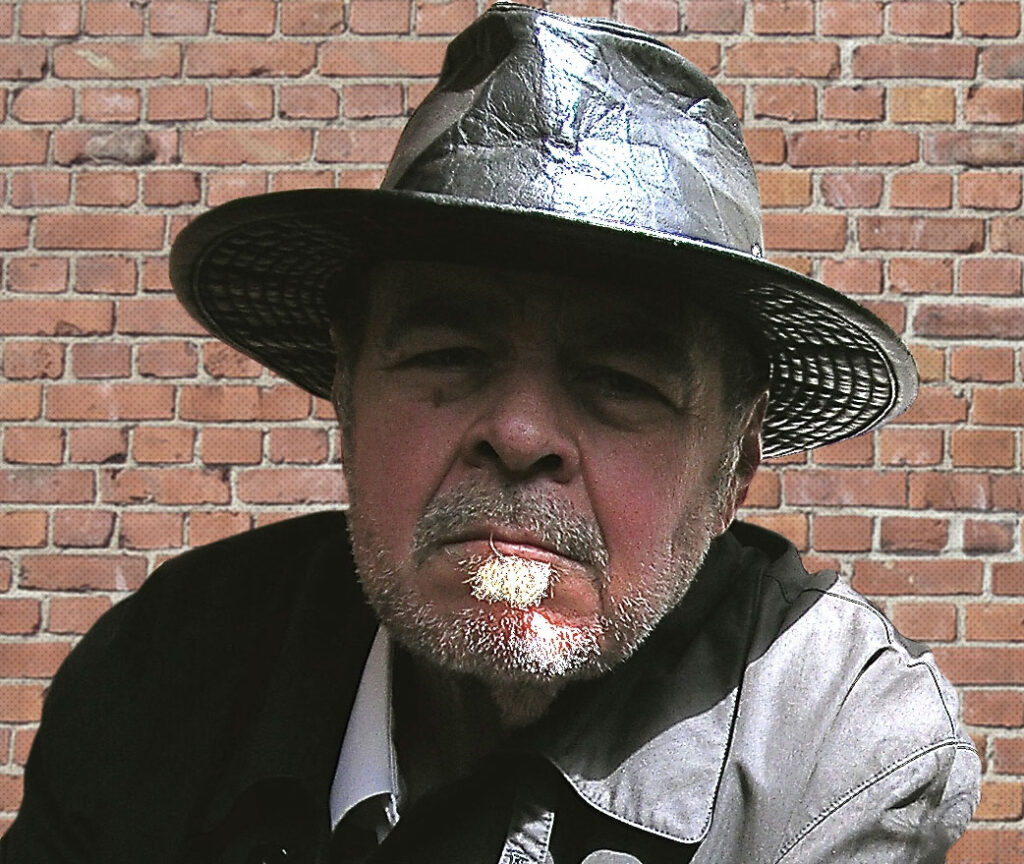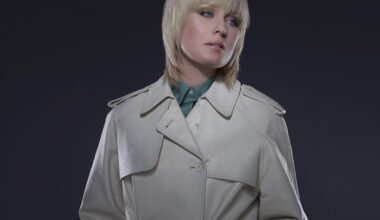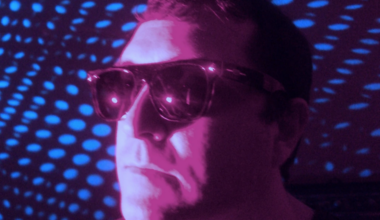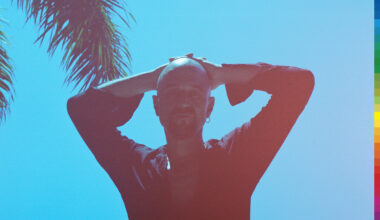Pere Ubu’s infamous frontman David Thomas takes his turn to share some of the building blocks behind his groundbreaking work

AMERICAN LITERATURE
As a kid, I read lot of Hemingway and Ray Bradbury. In theory they’re two very different writers, but in reality there are similarities: Bradbury writes about things that aren’t seen and Hemingway writes about things that aren’t said. I also remember listening to recordings by Vachel Lindsay, the so-called “singing poet”. My dad was doing his masters on Lindsay – he was an American Lit guy – he was into the Beats, Ginsberg, Kerouac, he knew Gregory Corso’s wife. He was of that generation. Kerouac I liked because Kerouac was The Kid. I loved that whole idea of the journey east to west and following the sun. I thought the other Beat poets were theatrical, detached, whereas Kerouac was like, “Hey, let’s go!” and that to a child is much more interesting.
Pere Ubu were pre-punk, not post-punk. We came up as part of a short-lived generation in America in the mid-1970s who were literate kids. Groups like Television and us and The Residents and a number of other little groups you never heard of had ambitions – it seemed very clear to us at the time that there was another step coming and that we were the step. The evolution of the rock movement was really an upward straight line from the adolescence of rock ’n’ roll: ‘Heartbreak Hotel’, which formalises the third person narrative voice of rock music (it’s not about the Elvis character, it’s the bellhop who’s watching the Elvis character), then The Beach Boys and The Beatles. Then, in the 70s with the arrival of the analogue synthesiser and the realisation that the hippies were just a bunch of corporate tykes and the counterculture was a total farce, there we were, we seized our mission, and punk came along and wiped the whole damn thing out.
AN EPIPHANY IN GEORGIA
My father had a few albums which he listened to endlessly like ‘The World Of Harry Partch’, which was my introduction to music. He didn’t have a huge record collection, but this was in it. It was amazing. I was 10. No one told me this stuff was weird. It sounded cool to me. My dad also had a Lenny Bruce album, which features Bruce lying on a gravestone on the cover. I also liked The Kingston Trio’s song ‘Tom Dooley’ as well as ‘Worried Man Blues’, a folk song that has become something of an obsession for me over the years.
The first album I ever bought was Frank Zappa’s ‘Uncle Meat’ and then ‘Hot Rats’, which featured a really cool vocalist called Captain Beefheart, on the basis of which I bought ‘Trout Mask Replica’. Then came the MC5 album – that, along with Curtis Mayfield’s ‘Super Fly’, ‘Wild Honey’ by The Beach Boys and ‘Burnin’ by The Wailers, was the constant soundtrack to the sort of crypto-White Panther commune I lived in after I graduated from college.
My very first epiphany came in a village called Somerville in Georgia – actually, it may have been the next village along – and it was a pop song that came on the radio sung by some English woman, who may or may not have been Dusty Springfield. What I remember is that the song perfectly transmitted the feeling of summer in Georgia. There was a scent in the air that probably came from a processing plant nearby, yet it was a very distinct moment. Looking back, that was when I realised the power of sound. The pop song itself was obviously forgettable because I don’t even remember the name of it. But I remember the sound of it.
BIG ED STINN, CAR SALESMAN
I’m not an arty person, though I reckon I understand art better than a ton of artists. We were low culture people; we thought the high culture had its head up its ass. It was detached from the lives of the people we saw around us, ordinary people. It was in the debris and the detritus of ordinary people that we thought the work was being done. Folk culture – I’ve always been a folk culturist. I have a high regard for the “common man” and a disregard for the elites of society.
So yeah, I watched TV. We were kids. We understood that the TV was a propaganda tool, a medium of deception – I saw that in 1965 as a 12-year-old. I understood at that age that this media elite, this great and good whose faces you saw on the TV every day, were nothing more than a bunch of used car salesmen. But we liked the actual used car salesmen on TV because at least they were honest. Their adverts had spirit, had drive. We loved it – after midnight, they’d show the cheap stuff. We loved the idea of selling, of product, of progress. It’s a shame that most of it has disappeared now, but in those early days, all the Pere Ubu visual stuff, our ads, our posters, were based on cheap 1am adverts. Big Ed Stinn, come on down, he was a huge influence on us.
That’s quintessential: it’s about what people do, it’s about the road, the journey, the future. It’s about free, white and 21, it’s about 30 cent gas and all that kind of crap. But it’s self-aware at the same time, it’s about mythologies, and it loves the mythologies, the same as TV, it’s about mythologies. If you choose the right ones and understand that they ain’t real, then it’s not a problem. It’s like the Sistine Chapel. The Sistine Chapel ain’t real. So what?
CLEVELAND, OHIO
The place I grew up, where Ubu were formed. It fed in, in ways that are difficult to communicate. It was totally isolated and became kind of a big joke. There were endless numbers of comedy writers who were born and raised in Cleveland, went into television and discovered these old Polish jokes that they could turn into Cleveland jokes. You probably have the same thing in the UK with Irish jokes, and I bet they’re the same damn jokes. So we were aware of being disdained for where we came from and probably developed a fortress mentality. They say women have to try twice as hard as men to get to the same place – we felt the same minority chip on our shoulder – and Cleveland itself was hard, very competitive. None of this happy-clappy “we’re all in it together” stuff – it was more like “fuck you”. You might only get a gig twice a year in some crappy little dive and you’d damn well better be good.
And if you didn’t know the latest Popol Vuh album you couldn’t even show your face in town. This was the golden age of the record shop. Record stores were incredibly important. Most people in the scene at that point worked in record shops and if your shop didn’t have everything, and I mean everything, then it was like an alpha dog thing, you were sunk.
The Record Rendezvous stores in Cleveland, those places had everything. Anton Fier, who played with Pere Ubu for a while, was the manager at the Record Rendezvous on Prospect Avenue. That was the place Alan Freed discovered the term rock ’n’ roll along with the store owner, Leo Mintz.





